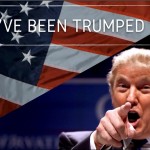Errol Morris’s (Tabloid, The Thin Blue Line) revelatory and quietly blistering ‘conversation’ with Robert McNamara, The Fog of War won an Academy Award in 2003 for providing a singular perspective of the Vietnam War.
The Unknown Known seems intended to continue that post-mortem on America’s foreign policy with an interview with another of its key architects, Donald Rumsfeld. The intention has not been fully realised because Rumsfeld proves a harder nut to crack than McNamara. Rumsfeld is so skilled in the art of obfuscation that, with some key exceptions, the fog of rhetoric and Rumsfeld’s smirking self-confidence is what we are left with. The film is worth seeing for that artful display alone.
As the title, taken from one of Morris’s memos, suggests, Morris is well aware of Rumsfeld’s knack of hiding behind words. In his long autobiography, Known and Unknown, Rumsfeld admits that he wrote tens of thousands of memos while in office, 20,000 during the Bush administration alone. ‘I wonder if in the future politicians will write as many memos as I did. I doubt it; there have to be millions’, Rumsfeld muses with more pride than embarrassment.
After becoming head of a pharmaceutical company, Rumsfeld was elected to Congress at 30 and selected for a Cabinet position at age 37. After becoming the youngest Secretary of Defence in history under Gerald Ford, he was Special Envoy to the Middle East for Reagan during the Lebanon War and Secretary of Defence again under George W Bush.
Unfortunately, Morris does not organise the historic events in a framework that is easy to follow by those who are not well-briefed on American foreign policy and politics in general. For many younger viewers in particular, the chronology and many references, such as Rockefeller’s term as Vice President, Alexander Haig’s memo and Henry Kissinger fostering détente will be confusing or meaningless.
While allowing us a good look as Rumsfeld’s still handsome poker face, seldom without a disingenuous smile, the ‘interview’ is punctuated with montages of newsreels, archive footage and other visuals, including ‘snowflakes’ of drifting memos and text, to illustrate Rumsfeld’s career.
Morris does his best to establish Rumsfeld’s reputation as a Machiavellian politician, but Rumsfeld does not take the bait. ‘I only volunteered for three things in my life’, he says in a well-rehearsed manner: the Navy, marriage and congress.’ After that, he volunteers nothing but contradictions, particularly on the US policy toward Saddam Hussein and weapons of mass destruction.
As Ambassador to NATO, he escaped the Watergate scandal, and he does not comment on a tape we hear of Chief of Staff HR Haldeman and then-President Nixon conferring about dumping Rumsfeld. Twice – once to object to Kissinger serving as Secretary of State and National Security Advisor and again after accusations of Iraqi prison torture – Rumsfeld resorts to tendering his resignation to get his way.
The supreme dodger of accusations and responsibility, he expresses horror at the footage of Abu Ghraib (the treatment of a few ‘high value’ prisoners, such as Kahtani – Mohamed al-Kahtani, the ‘20th hijacker’ – was not approved or proper) and flatly denies that any torture tactics were practiced at GuantanamoBay. Expressing frustration, he says, ‘I’ve never seen so much misinformation as that of Guantanamo Bay’ which ‘was extremely well run.’
If we learn anything new, we do get a little glimpse into the mind of an intelligent man adroit at political survival and obsessed with the limitations of military intelligence and the threat of the unknown. In a memo of February 4, 2004 he describes a category of information that he calls ‘the unknown knowns – that is to say, things that you think you know that it turns out you did not.’ If only we got a little more detail on that from Rumsfeld, the film would have been more informative, if not entertaining.
Joyce Glasser




